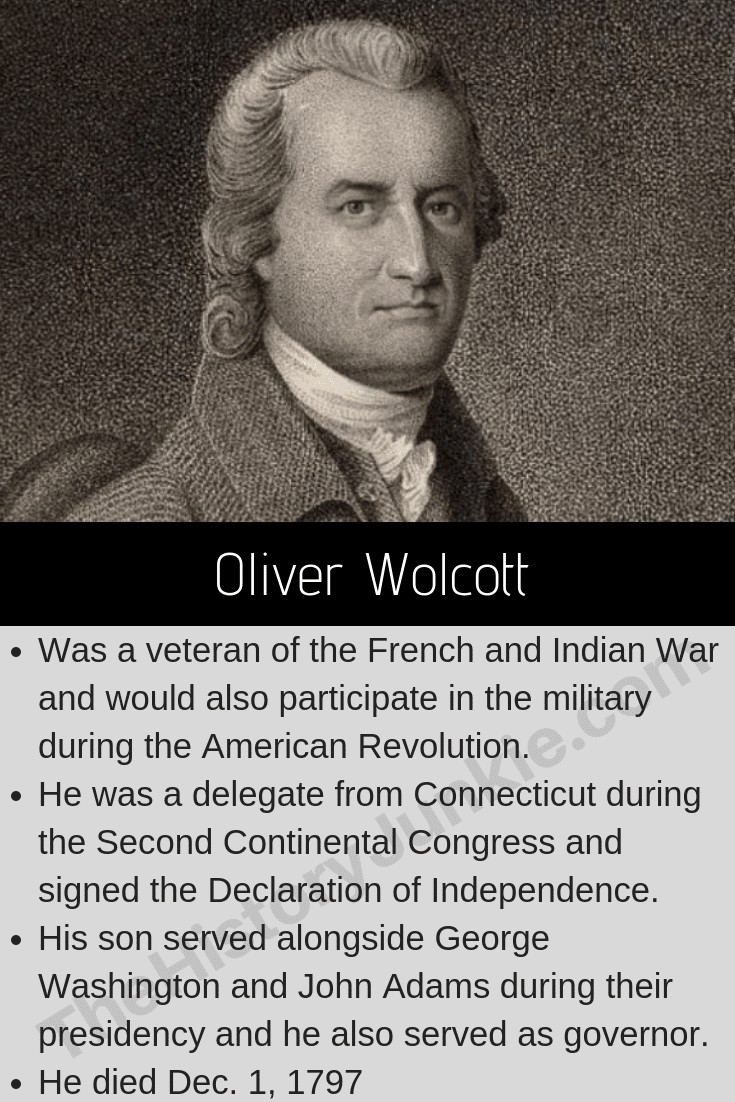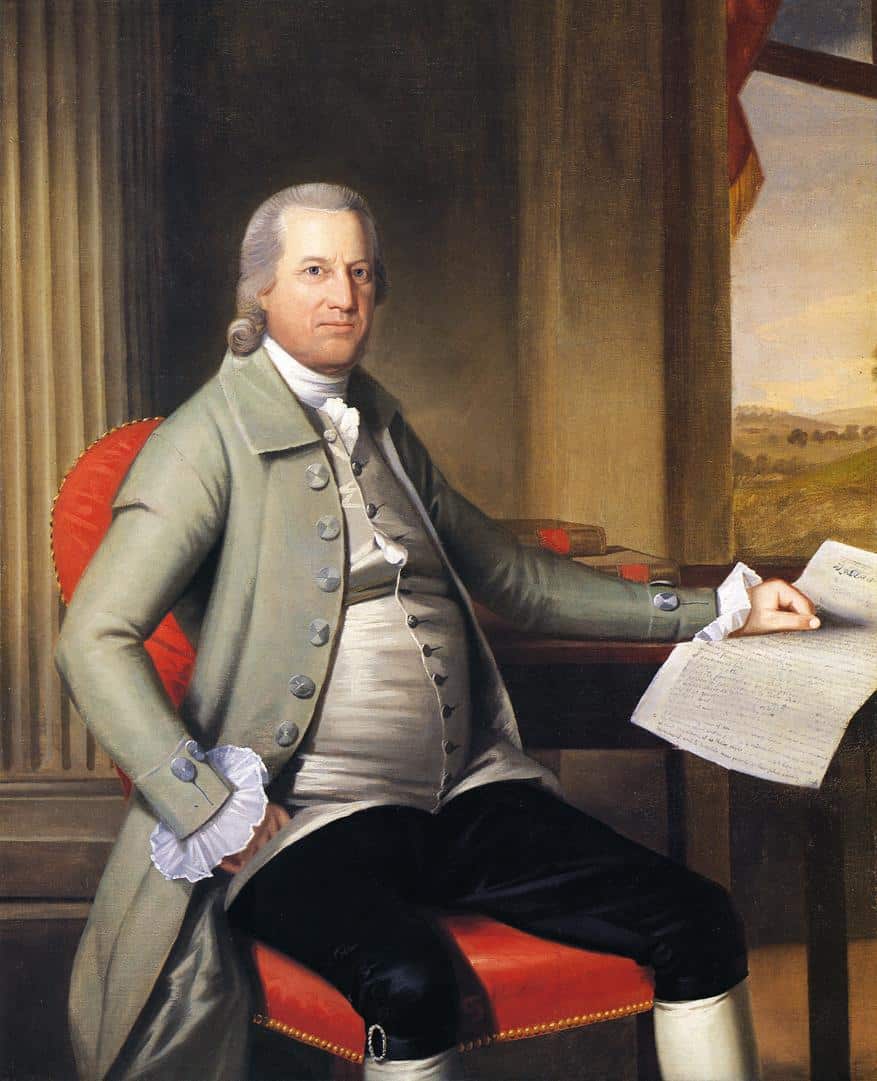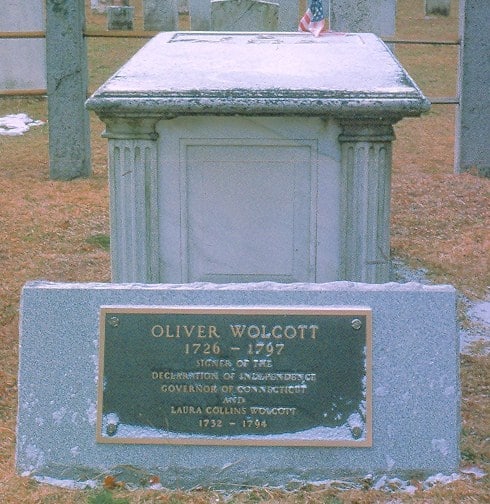Oliver Wolcott was a representative of the Connecticut Colony that signed the Declaration of Independence and the Articles of Confederation.

He grew up in Connecticut and was the youngest of fourteen children. His father, Roger Wolcott, was governor of Connecticut.
Young Wolcott understood from a young age what it was like to work in the public eye.
Oliver Wolcott Facts and Biography

He attended Yale College and joined the militia shortly after graduating. Here, he would serve in the French and Indian War. By the end of the war, Wolcott had achieved the rank of Captain.
He also fought in the American Revolutionary War after signing the Declaration of Independence alongside fellow Connecticut delegates:
He served as Brigadier General for the Connecticut militia and in the Continental Congress until he became seriously ill in 1776. He was one of the last delegates to actually sign the Declaration.
Oliver Wolcott Post-Revolution
After the War, he served as Lieutenant Governor of Connecticut until Samuel Huntington died in 1796 and assumed the governorship.
Wolcott died a year later on his birthday, December 1, 1797. Although he was relatively unknown to many casual history enthusiasts, he left a lasting legacy. He was known for his love of poetry and family.
His son served alongside George Washington and John Adams during their presidency, and he also served as governor.
Oliver Wolcott Legacy
Charles Goodrich had this to say about Oliver Wolcott in his book Lives of the Signers of the Declaration of Independence:
Mr. Wolcott never pursued any of the learned professions, yet his reading was various and extensive.
He cultivated an acquaintance with the sciences through the works of some of the most learned men of Europe and was intimately acquainted with history, both ancient and modern.
He has the reputation, and it is believed justly, of having been an accomplished scholar.
Mr. Wolcott was also distinguished for his love of order and religion. In his last sickness, he expressed, according to Dr. Backus, who preached his funeral sermon, a deep sense of his personal unworthiness and guilt.
For several days before his departure, every breath seemed to bring with it a prayer. At length, he fell asleep. He was an old man and full of years and went to his grave distinguished for a long series of services rendered both to his state and nation.
The memory of his personal worth, his patriotism, his integrity, his Christian walk, and his conversation will go down to generations yet unborn.

